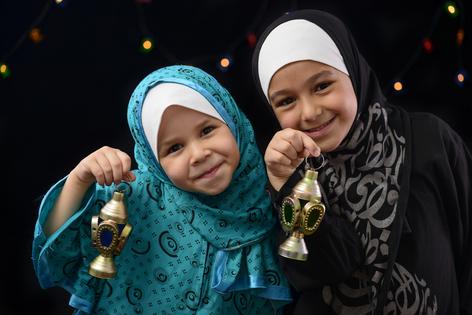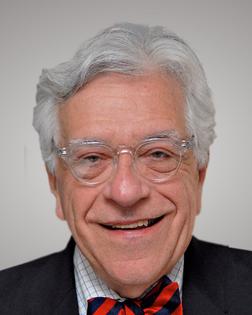The God Squad: Ramadan Mubarack
This is a holy time of the year for all the major religions of the world. We are in the time of Lent leading up to Easter for Christians. On April 15 Jews will celebrate Passover (which is also Good Friday). Last week, Hindus celebrated Holi, the second holiest holiday of Hinduism (after Diwali), and on May 15 Buddhists will celebrate Wesack, which is their holiest day in celebration of the birth of Siddhartha Gautama — the Buddha. And on Saturday, April 2, Muslims around the world will observe the beginning of their holiest month — the month of Ramadan. We are blessed this springtime to celebrate an absolute surfeit of world spirituality.
Let me wish all our Muslim readers a Ramadan Mubarack, “A blessed Ramadan” and let me try to explain to our non-Muslim readers just a bit about this remarkable religious ritual observed by over 90 percent of the almost 2 billion Muslims here on planet Earth, which means that roughly one out of every four people on the planet will be celebrating Ramadan beginning this week.
First, some common misconceptions and little-known facts about Islam:
– Most all Arabs are Muslims but most Muslims are not Arabs. Only about 20 percent of Muslims are Arabs. Turkey and Iran are the largest non-Arab countries and the largest is Indonesia.
– Muslim clerics called Imams, unlike rabbis and priests and Buddhist monks and nuns, are usually not employed full time as clerics but have other jobs and take on their religious duties in addition to their secular work.
– The preferred name for a Muslim House of Worship is not “Mosque” but “Masjid”. Mosque was a French name.
– Muslim men and women can pray together in the same room. In most masjids there are usually customs that have the men pray in the front followed by children and then women.
– There are no pictures or statues in a Masjid. Decorations in a Masjid are usually verses from the Quran and never ever a picture of The Prophet, which could be considered idolatrous or disrespectful.
– The Muslim calendar is unique among world religions because it is a pure lunar calendar which means that it is about 11 days shorter than the solar year. What this means is that Ramadan is one of the very few world religious holidays that is not connected to harvest times or any other agricultural event. It means that the time for the beginning of Ramadan floats throughout the year. One of my favorite Muslim blessings is, “May you celebrate Ramadan in every season of the year.”
Now, let’s return to Ramadan news.
– Ramadan celebrates the revelation of the Holy Quran by the angel Gabriel (the same angel from Judaism and Christianity) to the prophet Muhammad (peace be upon him).
– Fasting on Ramadan from dawn to sundown (in Arabic: sawm) is one of the five pillars of Islam. The other four are:
– The profession of faith. This is called in Arabic, shahada. It is, like the Shema in Judaism, a brief and eloquent statement of the central belief of Islam, “There is no god but God (Allah), and Muhammad is the Messenger of God.”
– Prayer (salat). Muslims pray facing Mecca and prostrate themselves five times a day (noon, afternoon, evening, and night) and they can be said alone but saying them in a Masjid is preferable particularly on Friday.
– Charity (zakat). Giving alms for the poor and for the maintenance of Masjids is one of the most admirable and impressive practices of Islam. Muslims are taught to give at least 2.5 percent of their income, but the poor with no income can fulfill zakat by doing good deeds for others.
– Pilgrimage (hajj). Muslims who are physically able are commanded to make at least one pilgrimage to Mecca in their lifetime. All pilgrims wear just two simple sheets to eliminate any social or class distinctions. The hajj changes one’s name and one’s life in an mass act of communal purification.
But now back to Ramadan rituals:
To ease the fast from dawn to sundown for an entire month, a predawn meal called suhur is eaten. The fasting includes no drinking but Muslims who are ill or infirm are exempt from the obligation to fast. The meal eaten after sundown is called iftar and it usually begins by eating dates. Large buffet meals and social gatherings are common for the iftar meals. The Sheikh Zayed Grand Mosque in Abu Dhabi, the largest mosque in the UAE, feeds up to 30,000 people every night. The holiday meal eaten at the end of the month of Ramadan is massively joyous and is called Eid al-Fitr with sweets and decorations.
Ramadan is a time of purity, joy, and generosity. Such a lesson is a gift to all the world.
(Send ALL QUESTIONS AND COMMENTS to The God Squad via email at godsquadquestion@aol.com. Rabbi Gellman is the author of several books, including “Religion for Dummies,” co-written with Fr. Tom Hartman. Also, the new God Squad podcast is now available.)
©2022 The God Squad. Distributed by Tribune Content Agency, LLC.
(c) 2022 THE GOD SQUAD DISTRIBUTED BY TRIBUNE MEDIA SERVICES, INC.










